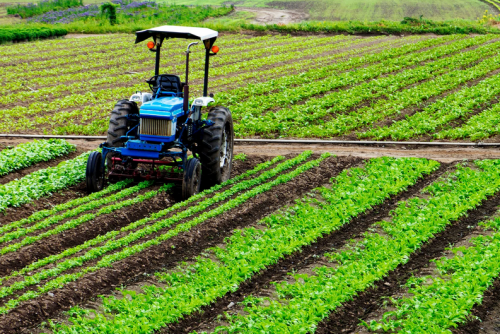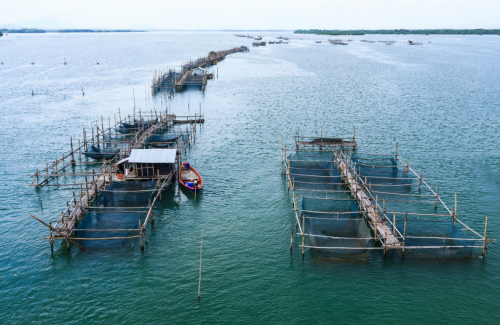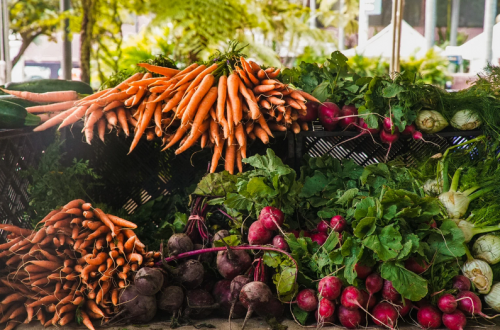With more than 9.7 million acres of farmland in the state, agriculture is a big deal in Florida. And because agriculture is inextricably linked with Florida’s natural resources, state representatives often put forth bills that aim to balance production with environmental conservation – a task that isn’t always easy.
Here’s what this year’s agricultural-focused legislation is all about:
Fair Repair of Agricultural Equipment
 Two identical bills, HB 533, introduced by Florida State Rep. Keith Truenow (R), and SB 422, introduced by Florida State Sen. Jennifer Bradley (R), that would allow farmers to access more information regarding the repair of their equipment have been introduced again after similar measures died in the 2021 session.
Two identical bills, HB 533, introduced by Florida State Rep. Keith Truenow (R), and SB 422, introduced by Florida State Sen. Jennifer Bradley (R), that would allow farmers to access more information regarding the repair of their equipment have been introduced again after similar measures died in the 2021 session.
Today, farm machinery like tractors increasingly rely on new software that contains intricate code. If a farmer’s equipment breaks down, they are often required by the manufacturer to have dealer technicians or experts from the equipment company come to fix it instead of doing it themselves or taking it to their own mechanic.
If passed, these bills would require equipment manufacturers to make diagnostic repair and software information available to owners of the equipment for free or in the same way they currently make them available to authorized repairmen.
There are similar “right-to-repair” bills in other states that have largely failed due to technology companies saying that releasing more software information could lead to tampering, security breaches, and intellectual property issues. Others say the industry has already committed to making diagnostic tools more accessible, making legislation unnecessary and overly broad.
But proponents say this bill would help farmers fix their own equipment in a more affordable and time-efficient manner.
“I think it just gives more rights to farmers,” said Charles Barrett, a regional specialized agent for water resources in North Florida for the University of Florida’s Institute of Food and Agricultural Sciences in a 2021 interview with TESI. “It gives them a fair standing, an equal, level playing field.”
UPDATE: HB 533 died in the Regulatory Reform & Economic Development Subcommittee; SB 422 died in the Commerce and Tourism Committee.
Department of Agriculture and Consumer Services
The Florida Department of Agriculture and Consumer Services (FDACS) is a state agency with broad responsibilities. Chances are, you’ve been involved with the agency whether you realize it or not. FDACS is responsible for supporting and promoting Florida agriculture, protecting the environment, safeguarding consumers, and ensuring the safety and wholesomeness of food.
Two identical bills, HB 1279, introduced by Florida State Rep. Daniel Alvarez (R), and SB 1164, introduced by Florida State Sen. Jay Collins (R), include several measures relating to FDACS from tax exemptions to dairy farming, to the state’s aquaculture industry.
TEAM Card for Florida Farmers
Modeled off a similar program in Georgia, this legislation, if passed, would allow farmers to apply for a Farm Tax Exempt Agricultural Materials (TEAM) card to help them more easily claim tax exemption for certain agricultural products and equipment. Currently, farmers must sign a certificate and submit it to the Department of Revenue to receive a tax exemption.
“I am proud to introduce this piece of legislation that will take some burden off of Florida’s farmers by modernizing the current and outdated process for agricultural producers to claim existing sales-tax exemptions,” Collins said in a press release.
Preference for Florida-grown food
Another section of the bill would require state agencies, universities, and colleges to give preference to food commodities grown or produced in the state, when available, practical, and feasible. Currently, when a state entity orders food, it must contract with the lowest-priced responsible vendor. Under this legislation, a vendor who agrees to source food from in-state can be given preference so long as the cost does not exceed 10% more than a vendor using out-of-state food products.
Fertilizer definitions
When looking for a product to fertilize plants or crops, it can sometimes be hard to discern what exactly you’re getting. This legislation looks to clarify things by adding and expanding definitions related to fertilizer in the Florida State statutes.
If passed, this legislation would better define what is meant by the terms “controlled release” and “slow-release” fertilizers. Both types of fertilizer aim to provide nutrients over time as opposed to water soluble fertilizers, which make nutrients available instantly.
In current state statutes, controlled-release and slow-release fertilizers share the same definition, but Thomas Obreza, professor and senior associate dean of extension with UF/IFAS, said they are quite different.
The new language would define the two as follows:
- Controlled-release fertilizers: engineered to provide nutrients at a predictable rate.
- Slow-release fertilizers: releases, or converts to a plant available form, plant nutrients at a slower rate relative to an appropriate reference soluble product.
“The difference here is in the word ‘engineered,’” Obreza said. He explains that controlled-release fertilizers are predictable, whereas slow-release fertilizers are less so. This language will make it easier for sellers to better market their product and for buyers to be more confident in what they’re getting.
The bills would also add several criteria for what can be sold and labeled as a fertilizer material.
“Marketers and sellers want to be clear about the properties and characteristics of their products,” Obreza said. “And growers want to completely understand what they are buying. With this language, distinguishing between controlled-release and slow-release materials becomes less ambiguous”
Lastly, the bills would also expand the definition of the word “grade.” Obreza explains that on each bag or trailer load of fertilizer, there is a label that lists the percentages of each key nutrient, called the “guaranteed analysis.” Currently, these percentages can only be stated in whole numbers. State inspectors routinely conduct tests to make sure the quality of the fertilizer matches the label, and sellers can be penalized if they are below the guaranteed analysis.
But some specialty fertilizers may contain a percentage of guaranteed nutrients that falls between whole numbers. The new definition would be expanded to include the text: “However, specialty fertilizer may be guaranteed in fractional units of less than 1 percent of total nitrogen, available phosphate, and soluble potash. Fertilizer materials, bone meal, manures, and similar materials may be guaranteed in fractional units.”
“Overall, I think the measure to update the language is a positive move in providing clarity about fertilizer products,” Obreza said.
Aquaculture 
Florida is home to a diverse aquaculture industry that produces the “greatest variety of aquatic species of any state in the nation,” according to a staff analysis of SB 1164. It is also the state’s most diverse agribusiness. The 1996 Florida Aquaculture Policy Act designated that the FDACS would be responsible for regulating the industry and created the Division of Aquaculture.
“There are approximately 1,000 certified aquaculture farms in Florida, located in every region of the state, which produce an estimated 1,500 varieties of fish, aquatic plants, mollusks, crustaceans, turtles, amphibians, and alligators for ornamental, food and bait markets as well as for sporting, conservation, and educational purposes,” reads a staff analysis of the SB 1164.
The bill would officially designate FDACS as the lead agency responsible for regulating and encouraging the development of aquaculture in Florida.
With all permitting being designated to FDACS, the bill aims to prevent unnecessary duplication. The legislation also allows aquaculture products, except shellfish and prohibited and restricted nonnative species, to be sold without restrictions. FDACS currently works in tandem with the Aquaculture Review Council, established to provide communication between the department and the industry.
The Aquaculture Review Council currently submits a list of research and industry development project recommendations to FDACS, however, no state funding has been allocated to these projects in the past several years.
Learn more:
UPDATE: SB 1164 was laid on the table, meaning it was set aside and died at the end of the session — however, its contents were substituted by CS/HB 1279, which was enrolled, meaning it has been approved by both the House and Senate and sent to the Governor for approval.
Urban Agriculture Pilot Projects
 As development continues to increase in Florida, more urban agricultural operations that don’t fit with the definition of traditional agriculture are popping up in and around towns and cities.
As development continues to increase in Florida, more urban agricultural operations that don’t fit with the definition of traditional agriculture are popping up in and around towns and cities.
In 2021, the state legislature passed The Urban Agricultural Pilot Project Act, which gives local governments the power to impose their own regulations on urban agricultural operations, as situations in the city are often different than in rural areas. The final version of the 2021 bill defined urban agriculture as “any new or existing noncommercial agricultural uses on land that is within a dense urban land area, not zoned as agricultural as its principal use; and designated by a municipality for inclusion in an urban agricultural pilot project that has been approved by FDACS. The term doesn’t include vegetable gardens for personal consumption on residential properties.” The 2021 bill also allowed FDACS to approve five urban agricultural pilot project programs in municipalities throughout the state.
Two identical bills, SB 1268, introduced by Florida State Sen. Darryl Rouson (D), and HB 1195, introduced by Florida State Rep. Lindsay Cross (D), would expand the definition of urban agriculture to include new commercial uses on urban lands, as opposed to only noncommercial uses.
Due to Florida’s Right to Farm Act, most types of commercial agriculture in Florida are regulated at only one level, the state level, which means they are often exempt from laws that apply to businesses or individuals in cities or municipalities. This idea is called preemption on duplication of regulation. It is meant to keep farms viable and operating smoothly by not being subject to laws or regulations from more than one source, said Catherine Campbell, an assistant professor of community food systems at the University of Florida in a 2021 interview with TESI.
By expanding this language, these bills would exempt commercial operations considered to be “urban agriculture” from the protection against regulations that the Right to Farm Act provides to traditional farms. To put it simply, the legislation would give local governments that are part of these pilot projects the power to impose their own regulations on urban agricultural operations that are deemed commercial, as situations in the city are often different than in rural areas.
Learn more:
- About urban agriculture
- About community food systems policy and planning
- About the benefits and limitations of urban agriculture
UPDATE: SB 1258 died in the Rules Committee; identical HB 1195 died in the Agriculture, Conservation & Resiliency Subcommittee.
Other Related Bills:
- Carbon Dioxide Compliance and Credit Market for Agricultural Producers – SB 1470 (Died in the Agriculture Committee)
- Organic Material Products – HB 1361 (Died on Second Reading Calendar)
- Organic Material Products – SB 1472 (Died in the Community Affairs Committee)
- Agricultural Lands – HB 1343 (Died in Returning Messages)
- Agricultural Lands – SB 1184 (Died in the Appropriations Committee)